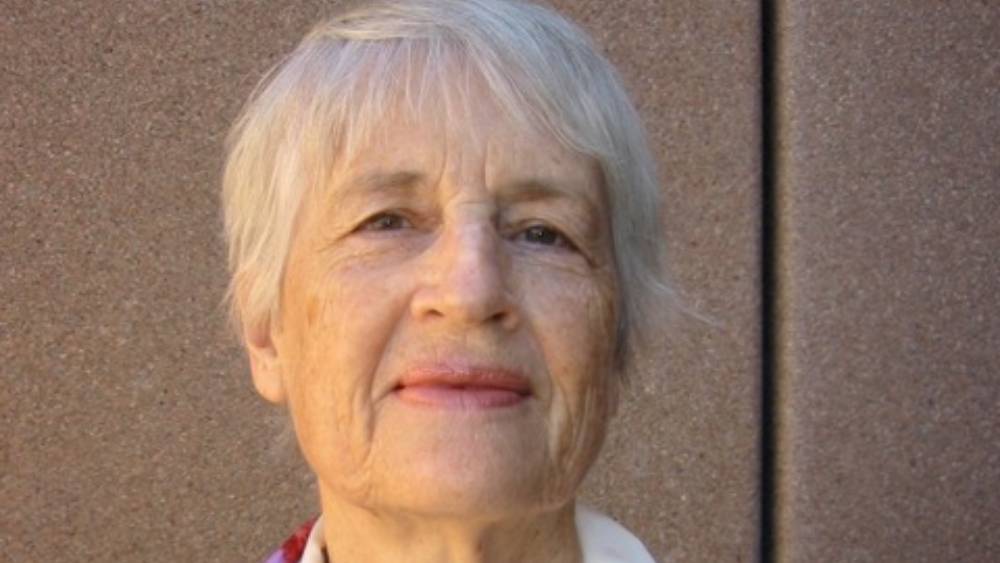Computers in NSW Prison Cells: An Interview With Former Family Court Chief Justice Elizabeth Evatt

As the old adage goes, prison is for punishment, not for further punishment. Indeed, it’s the deprivation of an individual’s liberty that a judge sentences them to prison for, not so they can be subjected to further retribution while behind bars.
And while the NSW prison system doesn’t receive much criticism in serving that purpose, it does come under some scrutiny in terms of its provision of rehabilitative and educational services. And that’s where the Community Justice Coalition (CJC) has stepped in to help.
Established in 2009, CJC has long been campaigning for the roll out of computers into prisoners’ cells. However, it was the eight month halt on prison visits over the COVID-19 period, and the trialling of video visits via computer tablets, that finally brought the NSW government to the table.
In October, 800 tablets were distributed to maximum security inmates at the John Morony and Dillwynia Women’s correctional centres, while the recently opened and privately-run Clarence Correctional Centre near Grafton has also provided prisoners with computers.
Computers in cells
As the Community Justice Centre tells it, prisoners can spend up to 16 hours locked in their cells every day. So, having computers within them allows for the utilisation of this time for rehabilitative and educational purposes, as well as making it possible for them to speak to their families.
The tablets permit prisoners to access certain sites providing educational programs and counselling services that can assist in behavioural change.
These computers cannot access all online sites, but only those that are white-listed, and communicative access is provided to pre-approved individuals.
Experts agree that educational programs are effective in rehabilitation and contribute to reducing reoffending. While the ability to communicate with family promotes the wellbeing of inmates, which is a benefit for them, as well as the greater community in the long run.
Computers in cells have been available in the ACT since 2009, while they’re provided in other nations, such as Norway and Denmark.
However, what makes the current trialling of the NSW Computers in Cells program a world first is that it provides access to rehabilitative services as well as online phone access.
A reformist lawyer
The NSW government finally pricked up its ears to the idea of computers in cells when CJC president and former NSW Attorney General John Dowd and former Chief Justice of the Family Court of Australia Elizabeth Evatt sent out a letter to all state MPs and judges in August 2017.
The letter detailed that providing prisoners with online access to counselling services in their cells could have potentially spared 500 women and children from domestic and family violence incidents that year, as well as saved the government $110 million in related costs.
A supporter of the CJC Computer in Cells program, Elizabeth Evatt AC was the first woman judge in an Australian federal court and the first Chief Justice of the Family Court.
Further known for her work as a reformist lawyer, Ms Evatt has been a tireless advocate for women’s rights.
Sydney Criminal Lawyers spoke to Ms Evatt about the impact the Computers in Cells program will make, the benefits it will bring to society as a whole, as well as her thoughts on the increasing women prisoner population in this state.

Ms Evatt, in a world first, 800 tablets have been distributed to inmates in three NSW prison facilities: two government-run and one privately. And this is with a view to rolling the scheme out statewide.
You’ve been supporting this program. What are the benefits of it? And what sort of impacts do you expect it will make?
The immediate impact for those that have got the tablets is that they’ll be able to use them in their cells after lockdown to make phone calls to their families. Lockdown is pretty early in some places of detention.
Prisoners will now be able to talk to their children at bedtime, or their family during the evening, and that’s going to make a big difference to a lot of people. Inmates will have a list of people to whom they can talk to.
But that’s only the beginning. These tablets – which every prisoner will have in the long run – will also be used for two other important purposes.
This includes receiving educational programs. These will be from basic to more complicated university ones, in due course.
So, that will open up a huge area of education and training for prisoners.
They will also be available for counselling programs that are delivered online. These assist people in behavioural change and can be individualised.
It’s got personal benefits for the prisoner, as well as rehabilitative purposes that assist with preparing for life outside of gaol.
So, it’s a tremendous step forward and long overdue, because this has been possible for quite some years.
As you’ve mentioned, the computers will provide access to rehabilitative and education services. In your understanding, how much of a need is there for these sorts of programs in NSW correctional facilities?
There’s quite a big demand, and it’s certainly encouraged by Corrective Services. They provide programs of this kind, but they’re only available during certain times and may not be individualised in the way that’s required for particular people.
Coming through accredited bodies, these online services are available through the tablets, and they’ll be more individualised for a prisoner. They have education materials that can be used in the cell after lockdown.
Turning to prisons more generally. Over the last decade, there’s been a marked increase in the number of women being incarcerated in Australian prisons. The majority are in there for nonviolent minor crimes.
What are your thoughts on the increasing incarceration of women in this country?
It’s deplorable. About 40 percent of these women are on remand. They haven’t even been convicted, which is a real disgrace.
It comes from the fact that many of these women don’t have stable housing or support, so they don’t get bail and, in the end, they may not be convicted of any offence.
There are groups who are working in programs to divert women away from prison and into community support services to assist and deal with their personal issues and avoid the need for them to be detained in prison.
We’ve got a program out in Penrith called The Miranda Project. It’s a small project, but it’s highly successful. It’s run through the Community Restorative Centre.
Much of the women within the nation’s prisons have been subjected to some form of family or domestic violence.
Yes. I meant to mention that before. Many women in detention – more than half – have been subjected to family violence.
As you probably know, a disproportionate number of women prisoners are of an Indigenous background. This is a disgrace for our nation.
And how do you think this could be addressed?
As I said, we’re advocating for programs of diversion to divert women – Indigenous women, all women – away from detention and into community support programs.
These are particularly suitable for nonviolent offences.
We’ve had a lot of success with the women in the program, but it’s quite a small one. We want to have it extended, with more case workers and centres for these services.
We want to keep as many women who have gotten into trouble with the law out of prison and actually assisted in a positive and practical way to reshape their lives with support, deal with their issues and get them back on track with housing and employment.
In 2004, on the twentieth anniversary of the Sex Discrimination Act, you gave a speech critiquing the legislation. You claimed it hadn’t been effective enough in bringing about the elimination of discrimination against women.
How would you sum up the state of play today in Australia, regarding women’s rights and discrimination based on sex?
There have been exemptions from the Sex Discrimination Act, but quite a lot of progress has been made from those times in the way we deal with domestic violence and harassment.
There has been some very high-profile cases of harassment and sexual abuse.
What’s happened is a growing awareness of what the issues are, and a growing willingness by employers and others to deal with those issues in an effective manner.
So, we’re making progress, but we ain’t there yet.
And lastly, Ms Evatt, in regard to the roll out of computers in prisoners’ cells you’ve remarked that it’s a benefit for the whole community.
How would you say this program will benefit society as a whole?
Anything that helps a prisoner to deal with his or her issues, to maintain contact with the community and to be better prepared for leaving prison and re-entering the community will help because we want to avoid reoffending by prisoners.
We want to avoid reoffending by making sure the prisoner has the best chance of re-establishing in the community in a positive way. And by maintaining the contacts and having these additional rehabilitative and educational processes that’s a step towards it.







